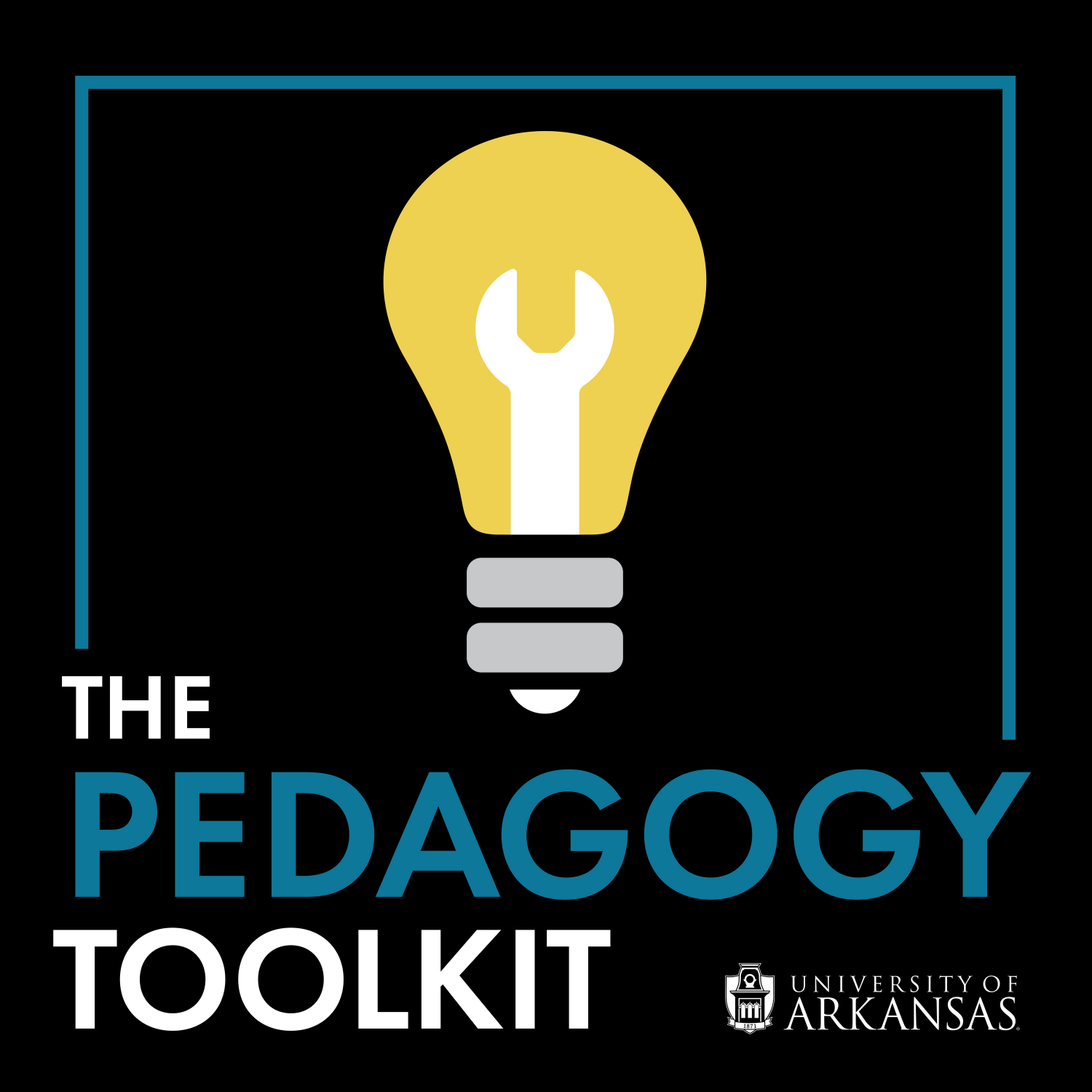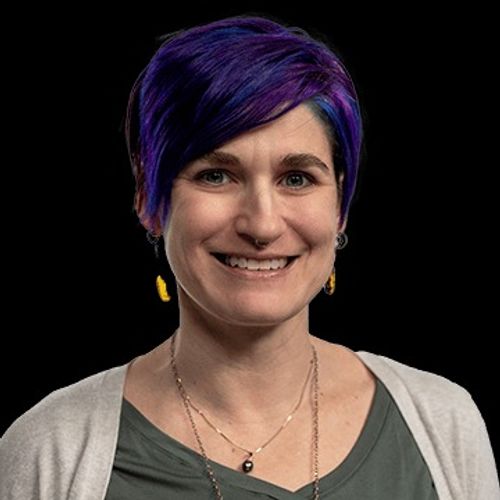Minds of Metal: Harnessing AI's Potential for Redefining Literacy
In this episode, James, Amalie, and Camie discuss how AI is changing education.
Relevant links:
Interview with Geoffrey Hinton, Godfather of AI
CBS Interview with Geoffrey Hinton
Open Letter by Tech Leaders Asking to Pause the Advancement of AI
Why Cursive Handwriting is Good For Your Brain
Is Handwriting Relevant in the Digital Era (downloadable pdf)
The Importance of Cursive Handwriting Over Typing
Transcript
Camie Wood 0:00
In education, we talk a lot about future skills. What is good for students to know now so that they can be successful in the workplace once they're out of school? In this episode, we're going to talk about AI in education, the good, the scary, the practical. Join James, Camie, and Amalie as they explore AI in education, both how these things can present problems and also the benefit of having them.
When was the last time you wrote a letter in cursive, Amalie?
Amalie Holland 0:51
I think the question is, when was the last time I wrote a letter, but the last time I wrote in cursive, I don't think I even write notes around the house in cursive.
Camie Wood 0:59
I think I do some kind of blend of cursive and print. All caps block print. Oh, yeah. That takes too much effort. And he did not have to pick up my my pen from the paper. So it turns out there's a lot of research about handwriting in general, there is some debate between print and cursive. But we will not get into that today. Because that could be an entire episode, based on the opinions on that subject. But handwriting has become somewhat obsolete in schools, they don't do a lot of teaching handwriting. They teach keyboarding. And Elementary, it's it's kind of turned the table to typing. When you have one of those digital documents, it's a lot easier for students to see, you know, you don't have to parse out the language is typed. So it's neat. But also, it's really easy for teachers to give comments and feedback on those digital documents. But it turns out that handwriting actually helps you, it can develop these neural pathways that typing does not so especially when you're learning to read and you're learning, even letters, then it's really important for you to actually draw those, you know, by hand, use those motor skills, because it it makes those connections and you retain the information longer. And so a lot of people have pondered, what are we losing by not teaching handwriting in school anymore.
Amalie Holland 2:29
I actually always encouraged my students to take their notes by hand and not type them for that reason, because it's building. It's one more layer of learning that they get building that one more neural pathway.
Camie Wood 2:42
Yeah, there have been a lot of just debating about this in general, there's been a lot of research on it. Even recently, in the last couple of years, and this has been an issue for gosh, well over 10 years at this point. And so this is something that people have been asking for a long time. And it ultimately leads to the question, what is literacy? James? When I say literacy, what do you think of?
Amalie Holland 3:08
Oh, you know, books, novels, that sort of thing?
Camie Wood 3:13
Yeah, it's reading, being able to read and write. But some people say that literacy actually goes a little bit deeper. And it says that literacy really means that you're able to function and you have all of those skills to function in society. Literacy can go beyond reading as well. You think about math literacy, that's another type of literacy that we don't often think about. So what are the skills that we need to function in society? Is it going to be you know, the handwriting skills? Is it going to be, you know, being able to type our papers up? Is it going to be using Alexa or getting into, you know, our Google Maps as we drive in the car? There are a lot of ways that technology has advanced that people then question, are we losing skills as a result of this technology advancement?
Amalie Holland 4:05
I used to hear this a lot with math teachers, actually. How much are we losing by kids not learning their multiplication tables? And just using calculators? But how much are we lose our do? Are they better off knowing how to properly use a calculator in order to get to the answers they need? Or are they better off memorizing a chart?
Camie Wood 4:27
And yeah, and there's been a big debate. In fact, recent research just came out and said, it's actually really good for you to rote memorize your times tables.
Amalie Holland 4:36
Yeah, there's been a big push against rote memorization. I think maybe we overdid it for a while. And the pendulum went the other way. But now I mean,
Camie Wood 4:45
right. But you do have to understand certain basic facts before you can start to manipulate or understand okay, I know this fact so I can then understand this advanced thing.
Amalie Holland 4:58
But I think that what you're saying about it going too far, or not too far, but that the pendulum has swung too much that we went from rote memorization all rote memorization to rote memorization bad. And so I think now we've gone to this sort of the essay is the way that we can tell in the humanities particularly, do you understand this write me an essay about it. And that may not be the most relevant or effective way for them to express what they're learning either.
Certainly not the most efficient way, especially on the grading side, though, I'm a huge fan of essays and writing essays. Yeah,
Camie Wood 5:40
I mean, here's the thing, you do get something from writing essays, right? You do get something from memorizing your multiplication facts, or handwriting your essay there. There's also something to be said about what is pertinent right now. And what other skills do you need? It's good to have a foundation, you need to learn things from the ground up. We've talked about this before. Just thinking about how we're teaching our students, right, you can't skip over the basic facts, and send them straight into analyzing and evaluating content, right, they have to know the basic facts before they can analyze and evaluate. And the next kind of big piece of technology that everyone's been talking about, of course, is a AI, artificial intelligence. It's a piece of technology that is doing things that used to be human jobs. A lot of it has changed. And you're probably familiar with some of the names, the bigger names and AI that have come out chat GPT, which is a product of open AI Bard, which is a product of Google. But even beyond those big texts, you have things like grammerly and notion coming out with their own AI within their systems. And so this is something that's becoming commonplace, it's not just one thing, one place, right, it's everywhere. And there have been concerns about that. What are some of the concerns you've noticed, James?
Amalie Holland 7:17
Well, you know, coming at it from an English teachers background, the biggest concern with a lot of instructors is plagiarism is having the essay written entirely by the AI, or if not entirely, then in large part by the AI and submitted as if it were work generated in a more traditional way, which was to copy by hand out of the encyclopedia.
I mean, that you're
Camie Wood 7:43
you're not wrong. I remember those days.
Amalie Holland 7:46
But I mean, yeah, the plagiarism is the big concern people have when it comes to AI, initially, at least in the humanities,
I think that's sort of the surface concern. The concern below that is, are they learning how to think about the subject? Are these their own thoughts of not just the, the are these their own words? Or these their own thoughts as well? Yeah.
Camie Wood 8:07
What skills are students losing? If we switch to AI? Right. And right now, I think the other question is, is it a switch to AI? Because this, this kind of feeds into that debate of what is it to be literate? Right? We need those, we need this technology, we need to be able to use it because it's here, right? It's not going anywhere. And so we don't want our students to be ill equipped for this moment. But they have to be able to have those foundational skills before they can go on. Or we will lose them. And now the other question is, does it matter if we lose them,
Amalie Holland 8:55
I do find it interesting that there still are a lot of teachers who instructors who want to get rid of that want to find ways to to catch the AI, any, any teacher who ever tried to do that with cell phones, when they became ubiquitous in the classroom knows that it's playing Whack a Mole. I mean, you're wasting all your time trying to do trying to keep the cell phones out of the room, or try to keep the cell phones out of their hands or out of their essays or out of their math assignment up. They're gonna walk out of that room and have that for the rest of their days, weeks years. They're going to have them for a long time. And they're going to use them, we might as well teach them how to responsibly and effectively use them.
Camie Wood 9:42
Right and it's, I mean, I think that's kind of the other fear of any person, you know, teacher instructor in the classroom right now, is that fear of having to play Whack a Mole because nobody enjoys that not the teachers and not the students. But having you know, having said that, having said that, this is a place something now James, I know you were an English major and I think only you were to write as, as undergraduates. And how much pushback did you get for majoring in English,
Amalie Holland:my mother used to tell people that I was going to college to be a waitress.
Don't think my, you know, my parents seemed kind of blissfully unaware of what I was studying, I think they all thought I wanted to be a high school English teacher, which I didn't, I wanted to be an English professor. Which, you know, that didn't pan out, either. But I think you've found in conversations with people a lot when you bring it up, what's your major English? It's like, No, Charlie, no English, you know, you get, you get a lot of these kinds of things. And I would say, it's really more about, you know, literary history and like, you know, theories of interpretation and kind of offshoot of philosophy, if you will, and try to get into the weeds of it, but then that, you know, that's kind of digging a hole to you, and you're not going to convince anybody, it seems like, it seems like a major that you don't need. And it's entirely true that they probably over produce them. You know, it's an attractive field for a lot of reasons. I think I know why I went into it. Because in high school when I was when I first started reading stuff on my own, really, I mean, that sounded terrible. I mean, surely I read some stuff before then. But the stuff I remember was Lord of the Rings, right? It was Lord of the Rings that was like, was popular at the time. And I remember looking at the jacket on the back and seeing that talking had done a English PhD at Oxford, I think. And so I thought, well, if you want to write something like that, I mean, you got to get a PhD. I'm, in a lot of ways a product of the entire lack of academic advising. But But I think that was like the thing for me is like, Oh, I noticed that authors that I liked, you know, had at least done a few years toward an English degree, whether they finished one up or not. So it seemed like a cool thing.
Camie Wood:Yeah, I think English was definitely idealized. I didn't, I ended up majoring in it. But in high school, I sure thought I was going to major in English,
Amalie Holland:I sort of accidentally became an English major, and then sort of accidentally got my masters in it as well. But when I was teaching, particularly teaching high school, it was I stopped pushing the essay quite as hard. My master's thesis was 80 pages long. I'm glad I did it, there was not a moment of that that was joy. For me, what's I'm not, I like writing, and I love thinking about things. And I love reading, and I love talking about them. And I love the ideas, I loved the research of doing that. I didn't love the essay part, I didn't love the writing the writing down the things that I was reading about and learning about and thinking about, I wanted to talk about it. So for me, that was kind of going okay, there are other ways that I could have been demonstrating this to, to people, I could have been doing this in an oral presentation in a way that that would have been, I mean, I still did the oral defense. But I had to do the writing part first. And I didn't, I never felt like it accurately expressed what I knew. And so when I was working with students, I had a lot especially with high school students, I had a lot who didn't want to write they didn't. They, they weren't going into fields where that was going to be necessary for them. Some of my students were going to college and they were going to major in traditional arts and sciences, they were going to need to know how to write a paper for their college career. And we worked on that, but my students who were in the welding program, and that was what they wanted to do, I wasn't going to make them learn how to write a 15 page paper. So for me, I wanted to drill down to what are the skills that that writing is demonstrating? Because ultimately, in academics and academia, we use the writing as an assessment, the writing tells us as the instructor what the student has learned how well they have learned it, what are the things that I'm judging? I'm judging? Can they accurately summarize something? I'm judging? Can they create an argument? Can they cite evidence? Can they do all those things? And they can do that in ways that don't involve an essay? So for me, the chat GPT hasn't been I don't think as scary a prospect.
Camie Wood:What is really cool is, you know, all that pushback that you got for being an English major or as your mom said, go into college so you can be a waitress which, you know, fine if you did
Amalie Holland:rich coming from her because she got a bachelor's in Fine Arts in painting, carry on.
Camie Wood:So as English majors, you know, kind of have the HA HA HA guess what we are the future. Because it turns out English majors are the ones who are the wielders of language, right? They are the ones who are coming in and becoming what they've dubbed prompt engineers. There you go. So that means they're working with AI to be able to effectively communicate and make sure that the AI can understand what people are asking them. When they ask questions. It's improving the AI response to our prompts. When us non wielders of language,
Amalie Holland:that would be we non wielders of language
Camie Wood:see right there. The people who have not spent all of our time writing those essays, we just put our prompt in, and AI can understand this because the English majors are working to make it better,
Amalie Holland:maybe it's a thing that just being engaged with language in a way that's a little more, I don't know, ongoing than most people make. I mean, I legitimately like firing a chat, what's called GPT, I never can remember the sequence of those characters, I always want to flip the last to make it GTP. But GPT. I like asking it questions just to see what it'll say and follow and do you know, more targeted ones based on the feedback. So I get that people who are savvy with language would be useful in kicking the tires, and doing the quality assurance on tools like this, or even just getting better answers out of it.
It reminds me of the early days of the Internet, when you had to really understand like pre Google algorithm, when you really had to understand the order of your key terms, plus your boolean terms, plus all those things. And and so you learned how to some you knew somebody who was good at searching for things on the internet, because they knew how to what order those keywords needed to go. Now,
I swear that works against you almost the more that you throw it in his natural language queries, the better your responses come. And I've also noticed that
when I ran a computer lab, I would see students come in and not know how to search things very well. They'd say, I start I looked for it, I looked for it, they had gotten so used to being able to just throw something in there and Google being able to read their minds and tell them what it was. And I would come back in and say okay, so what if we say less detail of this kind of detail, and it would pop up what they needed, and they just hadn't had to think about it. So I think that comes back to what you were talking about with handwriting and some of those things, knowing those base skills in order to be able to do better. So understanding language maybe is the one of the best ways to effectively navigate AI.
Camie Wood:That's why technology companies are now hiring which majors because language matters right now. And that's kind of one of the good things I guess to come out of AI is that it's not just suddenly, here's the technology, and you have to you don't have to know anything to be able to access it. Or to be able to manage it, this is now going to incentivize people to maybe become more effective communicators become the wielders of language, that kind of incentive, right? The job market incentive, it's a big deal. And it it puts a that's why you see a lot of STEM and things like there's been such a push for that. And things like history and English even have been pushed more to the side because that's why you got you know, had all that division for for majoring in English. When when you did because back then there, there was no incentive.
Amalie Holland:That's right. It's almost like now they've got enough engineers building the nuts and bolts of the AI and now they need some people with a little cultural literacy to train it, you know, right.
Camie Wood:But I think honestly, I think that it will expand because the another article that we've actually talked about is crochet artists have kind of broken chest GBD when they were trying to have it develop their crochet patterns, because there's no spatial reasoning in the AI right now. And so having some of the artists come in having math people for the spatial reason, like all of those things matter. Also, I don't know if you've ever tried to have chat GPT make you a schedule with a certain number of hours doing this, this and this for seven days a week or make you a meal plan with these ingredients. But it hasn't quite figured out how to include all the things that you're asking it to include or doesn't know how to count the hours in a week that it's assigned something. I've never gotten a correct schedule or meal plan.
Amalie Holland:Now I want to try that in barbed because Barr gives you multiple drafts. I wonder if combining those drafts would get because I'm maybe it doesn't do them all in one. But if you can combine things that
Camie Wood:I did try something in Bard the other day, it was a it was a schedule. I tried to schedule and it had kind of the same fallacies that ChatGPT did. Um I mean, you can go back and say, Hey, I need you to move this to these certain hours or, you know, please make sure you're including three hours. And yes, I know I just said please to the AI again.
Amalie Holland:I say please to the AI, we we have to be kind to our future overlords.
And you just have to stay in the habit. And
that too. I tried being mean to it one time just to see and it just got very simpering and I'm so sorry. That wasn't what you wanted this. What about this? Is this what you wanted? If got very simpering is the only word I can think where it it was said that it could not believe I know it was very disconcerting. It was a little weird
Camie Wood:already trying to figure out ways to manipulate your emotions.
Amalie Holland:That's right,
Camie Wood:actually. So I was reading I was listening to actually an interview by the godfather of AI. Oh, gosh, what is his name?
Amalie Holland:We'll insert it in post.
Camie Wood:No. I want to know what it is. I'm gonna find it.
Amalie Holland:Do it an entirely different voice. Mickey Mantle?
Camie Wood:Not Mickey Mantle. No, it was his Geoffrey Hinton
James Martin:the godfather of AI, Geoffrey Hinton.
Camie Wood:Okay. Let me get myself together before I say this. So I was listening to an interview by the Godfather of AI, Geoffrey Hinton, he's one of the more known names in AI technology and has been for decades. He was saying that AI already thinks, and the example he was talking about was if he asked a question, and they I was talking to him about Beyonce, and he said, Well, I don't know anything about Beyonce. And I don't care about Beyonce, because I'm an old white man, and not. And then he said, but the AI would be thinking that I'm a teenage girl. And I say the word thinking in the same way that I would if you had that same, you know, if we had the same conversation, you would be thinking now as a teenage girl, you'd be perceiving that right? He believes that eventually these things will be able to manipulate humans and and they're already more knowledgeable than us, but don't have the same like contextual advancements that we do. Yet, right? Yet,
Amalie Holland:the creator of chat GPT actually was testifying in Congress this week advocating for regulatory measures for AI.
Camie Wood:Yeah, Geoffrey Hinton also was saying, you know, there do need to be regulatory measures for this. And I think that's kind of part of that open letter, that you got a lot of the big technology leaders in the world kind of foot out and sign and say, hey, you know, we really need to put a pause on this, because otherwise, it's going to overtake us when we're not able to manage it before we get a handle on it. And so that that is a kind of another conversation. That's, you know, it, it is a conversation that people are having, I don't think it's one that an education we worry about yet. But it's one that we always keep in mind. Because anytime you're using technology, especially when the technology leaders are putting warnings out. Make sure
Amalie Holland:I think too, though, is in in the world of education, where you end up having to play the hand that we're dealt a lot, right, and the hand we're dealt right now is that there's a thing out there, not just one iteration of it, lots of different competing AI tools, and the kids are aware of them and use them for amusement mostly at this point, sometimes for completing their homework maybe, or at least getting a start on it. And I think since you can't really ban it can't really control it effectively. And you don't really want to turn yourself into the person who's playing this game of whack a mole that the safest bet is to try to find some way or at least the most pragmatic approach is to try to find some ways that you can use it instructively to actually bring it in and say, well, here it is Kids, let's just start our essay on existentialism, or whatever. And let's see what it does for a draft. And then let's critique its draft. And let's see how we would improve it. I did this with my kid, actually, we, I can't remember what our actual topic was. It might have been existential ism. I used that one. Because I mean, I know what that is. So I could like critique its answer. So I brought it up. And and he noted, he goes, You know, it's pretty good. But it's like it starts every sentence with a repetition like it's taking, like every sentence is a new stab at getting you an answer. And like, Yeah, that's right. So that's something we would work out. I said, I also noticed that it didn't cite any sources, really. And if this were more of a research type thing, we would need that because you can tell the AI to cite you some sources, but then you got to figure out if those were good ones or not.
Camie Wood:You know, we've talked about how we can use this with students to help them grow. But as instructors, there are lots of ways that you can do that. And one of them is by prompting it to create a list of resources and you can make it a variety of resources you can make like audio, visual, kinesthetic resources, all of these things. And then but that doesn't mean that you don't go into each of those resources and check it out before you share it with your students. Right, you make sure that those are actually the right things for you.
Amalie Holland:It seems like the legit uses or more as an idea generator are getting in the right direction before you dig in further, right? Yeah, it's
kind of an efficiency thing, too.
I mean, I know on the instructional design side, one of the most popular use cases is to generate lesson objectives. So you know, write me some lesson objectives for a lesson I'm going to do on on existentialism, or a syllabus.
Camie Wood:Even it can, it can generate those, it can create a study plan for you, if you say I want to study this topic and get better at it, you know, over this many weeks using this method, it will even implement certain methods for you, it will tell you the top, you know, 20% of things that you need to do in that field to get the 80% of results that you're looking for,
Amalie Holland:whether it's ultimately the enemy or not, it doesn't have to be the enemy in the near field. And we can come up with ways to use it that are instructionally sound, right?
Camie Wood:And that's, you know, that's kind of the point here is that AI is not going anywhere, it doesn't mean we dropped the other skills, you know, we can still continue to teach our students to write even essays sometimes. Or, you know, we don't have to stop them from writing, whether by hand or typing, we don't have to stop them from remembering their multiplication facts, these skills may be super important. These skills may be vital to students later on, especially when they use the AI right that you know, you can't run before you walk. Or so the saying goes, you do have to have some foundational knowledge before you can jump into that advanced setting. And so the way forward is deciding how we use the AI not really if we're using it, and then setting guidelines, both in classrooms and schools, and maybe by the government, but definitely in our classrooms and schools. We need to be looking at that and saying, Hey, what is appropriate for us? Thanks for being here with us on the pedagogy toolkit to talk about AI and how we can use that in education. Join us next time
Transcribed by https://otter.ai




